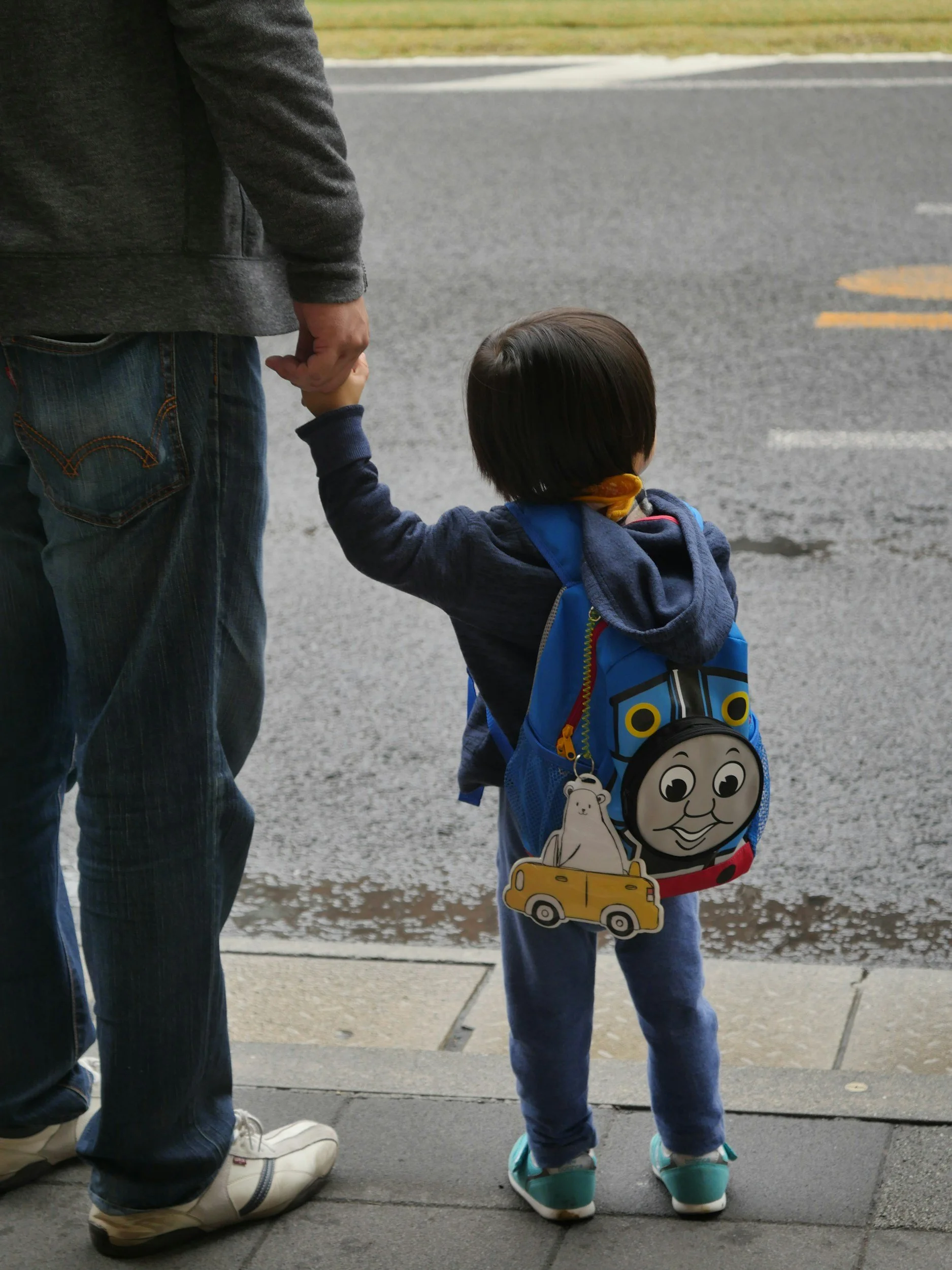Navigating the Transition: How Co-Parenting Therapy Supports Families Through Divorce & Beyond
Separation Is a Family Event, Not Just a Legal One
Ending a romantic relationship does not mean the end of a parenting partnership, and even when parents separate amicably, the ripple effects can feel enormous. Co-parenting therapy grew out of the recognition that kids thrive when caregivers cooperate, whether they live under one roof or two. Unlike traditional couples therapy, which focuses on the romantic bond, co-parenting therapy focuses squarely on the parenting alliance: the practical, emotional, and communicative teamwork that allows children to feel secure amid change.
If you and your co-parent are transitioning from married partners to parenting partners, this guide will help you understand the different ways co-parenting therapy can support your family — from short-term support to intensive retreats, and from cooperative to parallel parenting arrangements.
What Exactly Is Co-Parenting Therapy?
Co-parenting therapy is a structured, goal-oriented intervention designed to help separated, divorced, or never-married parents work together in the best interest of their children. Sessions emphasize:
Child-Centered Focus – shifting conversations toward children’s developmental needs.
Communication Skills – learning neutral language, clear boundaries, and emotional-regulation techniques.
Conflict Management & Repair – using evidence-based frameworks like the Gottman Method’s “softened startup” and Emotionally Focused Therapy (EFT) de-escalation.
Parenting Plan Development – crafting or fine-tuning schedules, decision-making protocols, and contingencies.
Coordination With Professionals – sharing information with mediators, attorneys, and child specialists to create an integrated support team.
While the above goals may sound similar to traditional couples counseling, remember that the benchmark of success is reducing parental conflict and increasing collaboration, focused on centering the child’s (or children’s) immediate and longterm wellbeing. And research shows that the co-parenting relationship has an important impact on the child’s psychological adjustment.
Tailored Formats: Individual, Joint, Family, and Child-Inclusive Sessions
Individual:
Who attends: one parent and therapist
Best for: processing strong emotions, preparing for joint sessions, support for managing a parallel parenting dynamic
Typical frequency: ongoing therapy offered weekly or biweekly
Joint/Dyadic:
Who attends: both parent and therapist
Best for: communication support, live problem-solving, updating parenting plans, navigating cooperative co-parenting relationships
Typical frequency: ongoing therapy offered weekly or biweekly, or through a therapy intensive
Family:
Who attends: parents, child(ren) and therapist; can also involve parents with new partners
Best for: helping kids voice concerns to parents, rehearsing transitions, family processing in a safe and supportive space
Typical frequency: often begins with weekly or biweekly sessions, and transitions into monthly or milestone-based and transition-based needs
Cooperative Co-Parenting vs. Parallel Parenting
Not all co-parents are ready — or able — to sit in the same room every week. That is why therapists assess which style of post-separation parenting best fits the current level of conflict.
Cooperative Co-Parenting
Involves moderate-to-high trust and direct, respectful communication. Therapy focuses on:
Fine-tuning listening skills (e.g., reflective statements)
Creating a shared vision of family values
Problem-solving upcoming developmental stages together
Navigating new romantic partners with transparency
Parallel Parenting
High-conflict couples may require parallel parenting, a structured plan that minimizes direct interaction while still centering the child’s needs. Key goals include:
Establishing firm boundaries (e.g., curbside hand-offs)
Using third-party tools like OurFamilyWizard for written communication
Crafting detailed schedules and decision trees
Teaching self-regulation strategies before responding
Parallel parenting is especially useful for high-conflict couples, or where forms of abuse occurred within the relationship. Many families aim to start in a parallel structure and gradually evolve toward cooperative co-parenting as conflict de-escalates.
Collaborating With Mediators, Attorneys, and Courts
Legal professionals handle custody agreements; therapists handle relational dynamics. Still, the overlap is significant. Your co-parenting therapist can:
Translate Emotional “Hot Spots” Into Concrete Clauses (e.g., a clear bedtime routine in the parenting plan).
Provide Progress Summaries (with consent) to mediators, demonstrating how communication has improved.
Recommend Specialized Services such as parenting coordination or reunification therapy.
Support Mediation Prep by rehearsing openings, managing reactivity, and brainstorming win-win solutions.
When therapy and mediation run concurrently, families often reach durable agreements faster and spend less on legal fees.
Flexible Support: Ongoing, Short-Term, or Intensive
Life after separation is unpredictable. Some parents benefit from ongoing weekly or bi-weekly sessions that adapt as children grow. Others prefer short-term packages (3–5 sessions) targeting a single issue, such as telling children about the divorce, creating or changing the co-parenting plan, addressing increase in child behavioral difficulties.
For deadlines — like holiday scheduling or how to disclose new living arrangements to children — a therapy intensive format (a full-day or weekend retreat) can jump-start cooperation. Intensives in-person in Hermosa Beach and Beverly Hills blend psychoeducation, live coaching, and written-plan development, providing 6–12 hours of focused work in one to two days. Online intensives across California are also available.
The Evidence: Why Co-Parenting Therapy Works
A review of two decades of coparenting research found that positive coparenting leads to greater parental wellbeing, improved parental involvement, and better child outcomes. Other studies show that even brief pre- and post-natal co-parenting support slowed the typical decline in relationship functioning and perceived stress after childbirth.
Three key mechanisms:
Reduced Exposure to Conflict – children hear less arguing and experience fewer high-tension days.
Aligned Parenting Strategies – consistent rules lower anxiety and improve sleep and academics.
Emotional Modeling – children watch adults repair ruptures and learn resilience.
Practical Benefits for Parents
Less Stress – clear plans mean fewer last-minute emergencies.
Financial Predictability – agreed expenses and timelines reduce money fights and stressors.
Faster Decision-Making – explicit plans and boundaries reduce conflict, and communication skills lead to faster resolution when needed.
Space to Heal – with a parenting framework in place, parents can focus on personal growth.
How Children Experience the Difference
Kids whose parents cooperate— even in parallel form — report feeling safer, heard, stable, and hopeful. Seeing parents treat each other with civility nurtures a secure worldview.
Beyond Basics: Therapeutic Approaches That Strengthen the Parenting Alliance
A skilled therapist applies multiple lenses:
Attachment-Based Perspective – naming patterns that mirror early wounds.
Gottman Method Exercises – techniques like “Dreams Within Conflict” help uncover core needs.
EFT Reframing – shifting blame to vulnerability reduces reactivity.
Narrative & Solution-Focused Questions – reauthoring the family story sparks hope.
Mind-Body Techniques – grounding, bilateral tapping, or guided imagery keep sessions productive.
Tech Tools & Boundary Agreements
Digital tools reduce friction:
Shared Calendars: Cozi, Google Calendar, TimeTree
Secure Messaging: OurFamilyWizard archives conversations for transparency.
Expense Trackers: Splitwise keeps receipts organized.
Therapists help parents draft communication charters — response times, escalation protocols, and tone guidelines — to protect time and emotional energy.
Caring for the Caregivers
The primary caregiver — typically the person who has a larger share of the physical and legal custody — often experiences unique challenges and stressors. Sustainable co-parenting requires individual resilience:
Individual Therapy for grief and identity shifts
Support Groups to normalize mixed emotions
Somatic Practices — like yoga or mindful walks
Legal & Financial Coaching to keep money anxiety from derailing parenting talks
Choosing the Right Therapist
Look for a clinician who:
Has a license and specific training in co-parenting or family systems
Collaborates comfortably with legal professionals, such as a mediation team
Utilizes evidence-based modalities (EFT, Gottman, Parent Coordination)
Offers in-person sessions or secure online therapy
Provides transparent pricing and clear role boundaries
Taking the First Step
If you are navigating separation and want to protect your child’s emotional world, co-parenting therapy offers a map. Whether you need a single consult or a weekly appointment, compassionate guidance is available. Reach out today to schedule a free 15-minute consultation and discover the format that fits your family.
An important note
Therapy is for healing, not legal advocacy. As such, the therapists in our practice are unable to testify in court proceedings.
Disclaimer
This blog is for informational and educational purposes only and does not constitute medical or legal advice, diagnosis, or treatment. Reading this content does not create a therapist-client relationship. If you are experiencing distress or mental health concerns, please reach out to a licensed mental health professional. If you are in crisis or need immediate support, please call 911, go to your nearest emergency room, or contact the Suicide & Crisis Lifeline at 988.

